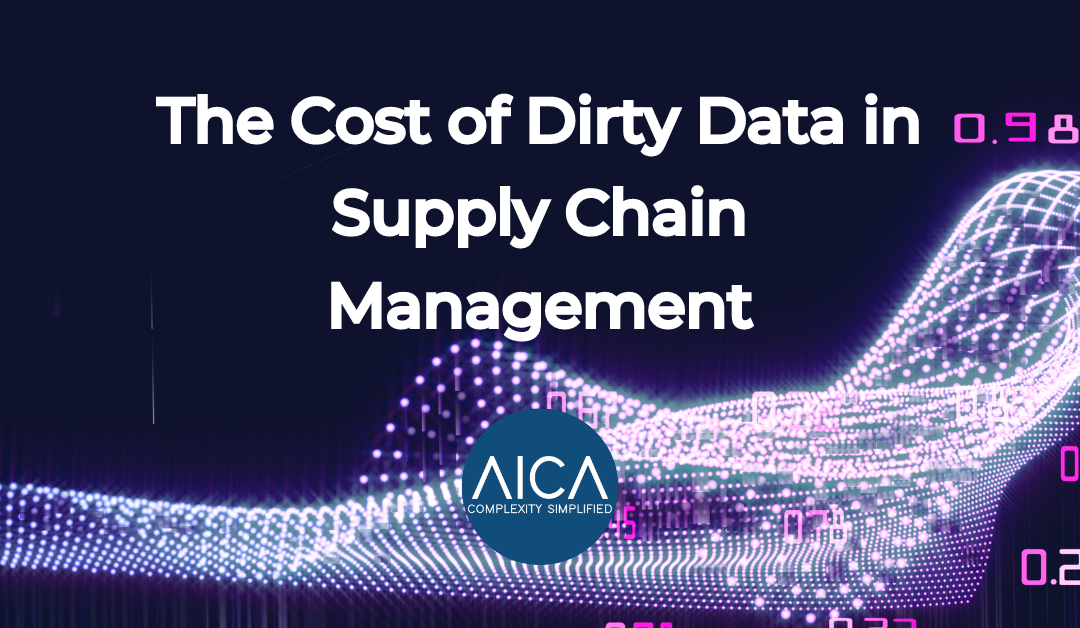In the complex web of global supply chains, the quality of data can either propel businesses towards unprecedented efficiency and profitability or drag them into a mire of escalating costs and missed opportunities.
Dirty data—a term that encapsulates inaccurate, incomplete, or inconsistent information, poses a significant challenge to supply chain operations, often leading to costly repercussions.
Understanding the Impact of Dirty Data
Dirty data in the supply chain can manifest in various forms, from incorrect inventory records and supplier information to flawed demand forecasts and transportation schedules. The ramifications of these inaccuracies are far-reaching:
1. Increased Operational Costs: Errors in order or inventory data can lead to excess stock, unnecessary storage fees, or urgent restocking that often comes at a premium.
2. Poor Customer Service: Inaccurate data can cause delays, incorrect product shipments, or failures in meeting customer expectations, all of which harm a company’s reputation and customer relationships.
3. Inefficient Resource Allocation: Without reliable data, companies may allocate resources ineffectively, either by overstaffing to handle potential problems of understaffing, which leads to delays and bottlenecks.
4. Lost Revenue: Pricing mistakes, lost orders, or failed deliveries due to dirty data directly affect the bottom line and can lead to lost revenue.
5. Decision-Making Setbacks: Strategic decisions made based on flawed data can lead to misguided strategies that may not only be ineffective but also costly to reverse.
Leveraging Technology to Mitigate Dirty Data
Addressing the challenges of dirty data requires a robust strategy supported by advanced technologies. Artificial Intelligence (AI) and Machine Learning (ML) are at the forefront of modern solutions designed to enhance data accuracy and integrity. Here’s how they help:
Automated Data Cleansing
AI algorithms can automatically detect and correct inaccuracies in data, ensuring that the information used across the supply chain is both accurate and consistent.
Enhanced Data Enrichment
ML can integrate and analyse data from various sources, enriching the existing datasets to provide a more comprehensive view of the supply chain.
Predictive Analytics
By analysing historical data, AI tools can predict trends and patterns, aiding in more accurate forecasting and planning.
Real-time Data Validation
AI systems can validate data in real time, identifying anomalies or errors as they occur, which allows for immediate correction.
AICA: Customising Solutions to Combat Dirty Data
At the end of the spectrum, choosing the right partner to implement these technologies is crucial. AICA offers specialised solutions tailored to cleanse, enrich, create, and compare product and service data effectively.
Here’s why AICA stands out:
- Speed: Our solutions are up to 90% faster than traditional methods, significantly reducing the time needed for data management tasks.
- Cost-Effective: Our AI-driven approach minimises the need for manual labour and reduces errors, substantially cutting down operational costs.
- Exceptional Accuracy: We utilise specialised Large Language Models (LLMs) that achieve over 80% accuracy, far surpassing the 30% accuracy of general AI models.
- Industry-Specific Training: AICA’s algorithms are specifically trained on MRO product data, ensuring highly relevant and precise data handling.
- Customisability: Our services are highly customisable, allowing organisations to select specific solutions that address their unique data challenges.
Conclusion
Embracing AI and ML technologies through a provider like AICA can transform dirty data from a liability into an asset, enabling businesses to optimise their supply chain operations and achieve new levels of efficiency and effectiveness.
Visit our website to book and demo and to find out more about our services.
Copyright Reserved © AICA Data International Ltd 2024

